Do Solar Panels Increase Home Value?
You’ve probably heard that solar panels can help you reduce your carbon footprint and save on utility bills. But did you know that they may also increase your home value? Solar panel installation may add thousands of dollars to your home’s worth. In this blog, we’ll discuss how much home value solar panels add, what factors contribute to the property value, and how to save money on installation.
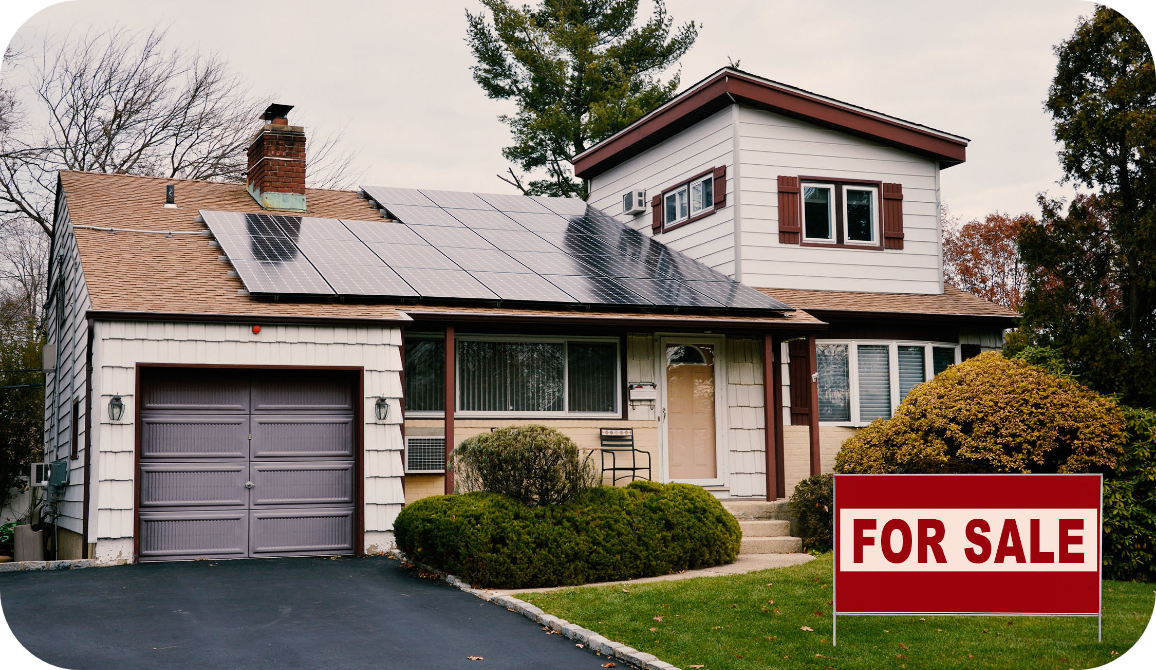
Solar System Options
When installing a home solar system, homeowners can choose between a grid-connected system and an off-grid system. Grid-connected systems are connected to the electrical grid, allowing homeowners to use solar power when it’s available and switch to grid power when it’s not. These systems are typically more affordable and easier to install. Off-grid systems aren’t connected to the electrical grid. They’re often more expensive and complex than grid-connected systems. However, they’re great for homeowners who live in remote areas and can’t access grid power.
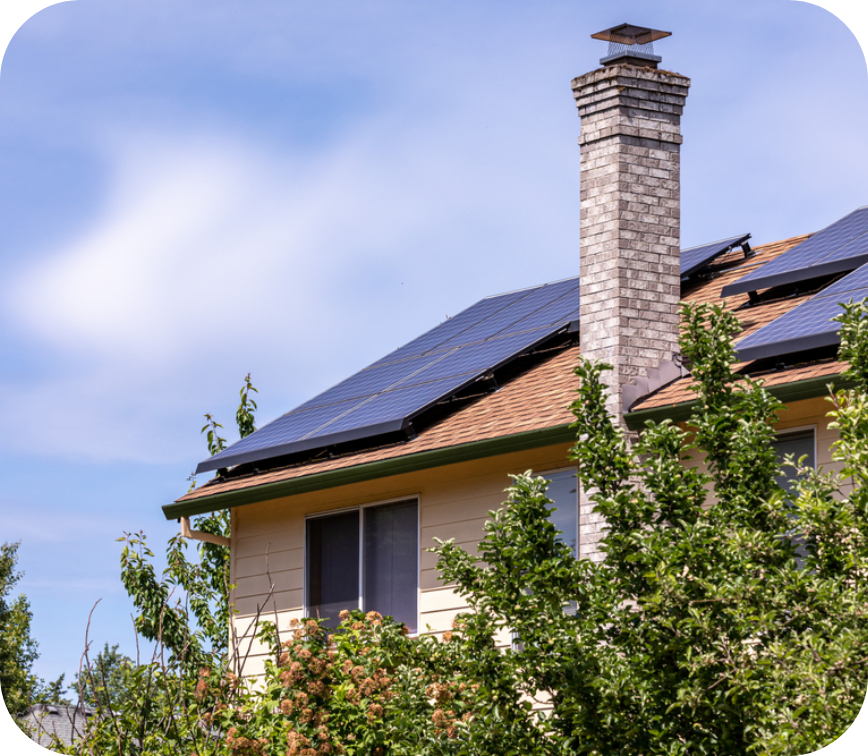
How to Save Money on a Solar System
Solar panels may increase home value but are often a significant investment for homeowners. However, there are a few ways to save money on the upfront costs and ongoing expenses of solar panels. These include
What Affects the Cost of a Solar System?
While solar panels may increase home value, it’s important to consider the cost of a system and what can affect it. Solar system costs can be affected by several factors, the most significant of which are maintenance costs and tax rebates. In general, solar panels don’t require much maintenance except for occasional cleanings. You don’t need to clean your panels regularly, but they should be cleaned if you notice dirt or debris build-up. Rain is usually sufficient to wash away dirt, but you might have to hose your panels down occasionally. Panels may also require minor repairs or replacements over time. Your solar panels may need regular cleaning and maintenance if you lease them or are covered by a warranty. These costs should be considered when pricing a solar system.
As mentioned above, homeowners can take advantage of many federal, state, and local tax credits, incentives, and rebates to offset the cost of their solar system. The most popular of these is the Federal Solar Tax Credit which offers a 30% tax credit for the total cost of a solar system. With these incentives, homeowners can more easily and affordably increase home value with solar panels.
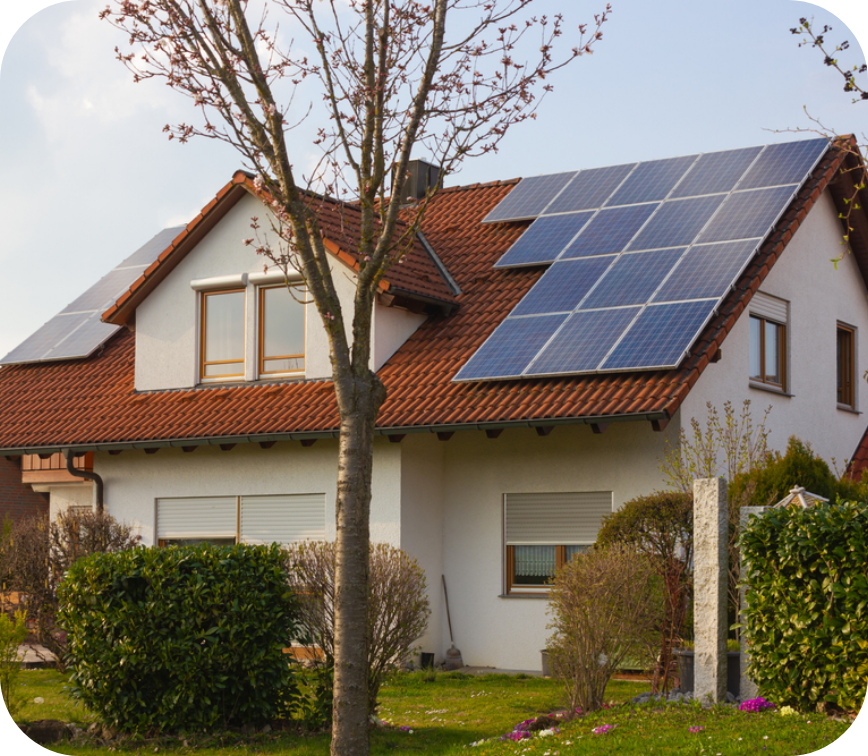
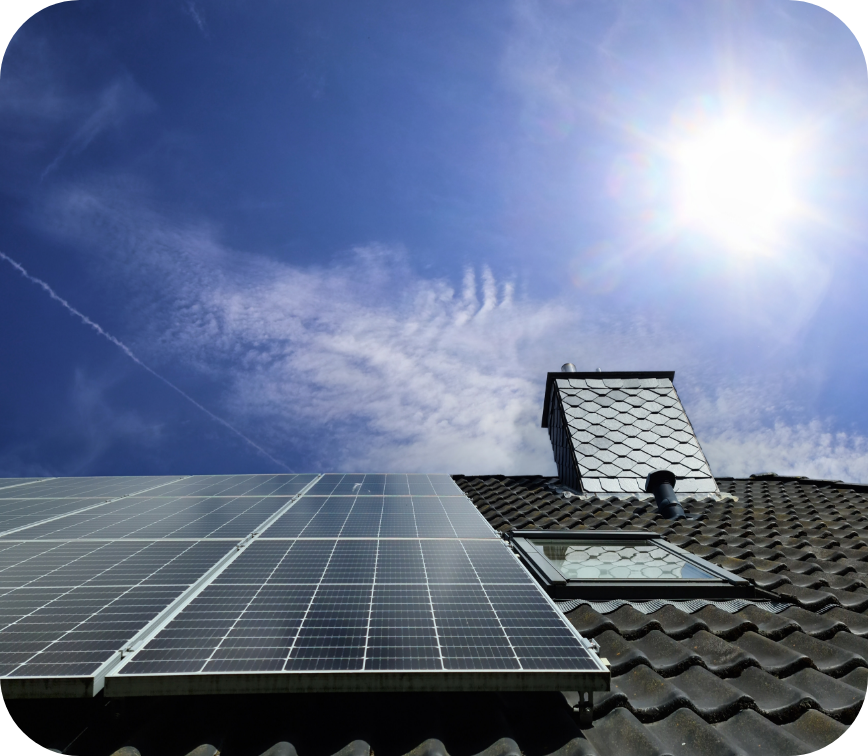
Types of Solar Panels
If you want to install solar panels for home value, there are currently two main types of panels available — monocrystalline and polycrystalline. Monocrystalline solar panels are made from a single, high-grade silicon crystal. Because of the high-grade silicon, monocrystalline panels are known for being highly efficient. They typically generate more power per square foot than other types of panels and have a longer lifespan. Though they produce more energy and are more durable, they usually have a higher price tag than polycrystalline panels.
Polycrystalline solar panels are made from multiple silicon crystals. During production, manufacturers melt and pour raw silicon into a square mold. After it cools, it’s cut into thin wafers and assembled into a panel with a glass or plastic cover. These panels are typically less efficient than monocrystalline panels, so they generate slightly less power per square foot of panel. However, they’re often a more budget-friendly option for homeowners and are still known to last up to 25 years, like monocrystalline panels.
Do Solar Panels Affect Property Tax?
Because solar panels can increase home value, you may also see increased property taxes. However, this relies heavily on where you live, as several states have passed laws that prevent homeowners from being punished for investing in solar. Solar tax exemption laws let homeowners claim an exemption for the increased property value from solar installation without losing the additional property value.
To fully understand the possible impact installing solar will have on your property taxes, we suggest reaching out to your local tax assessor’s office. They can provide you with more information and guidance based on the specific regulations in your area.
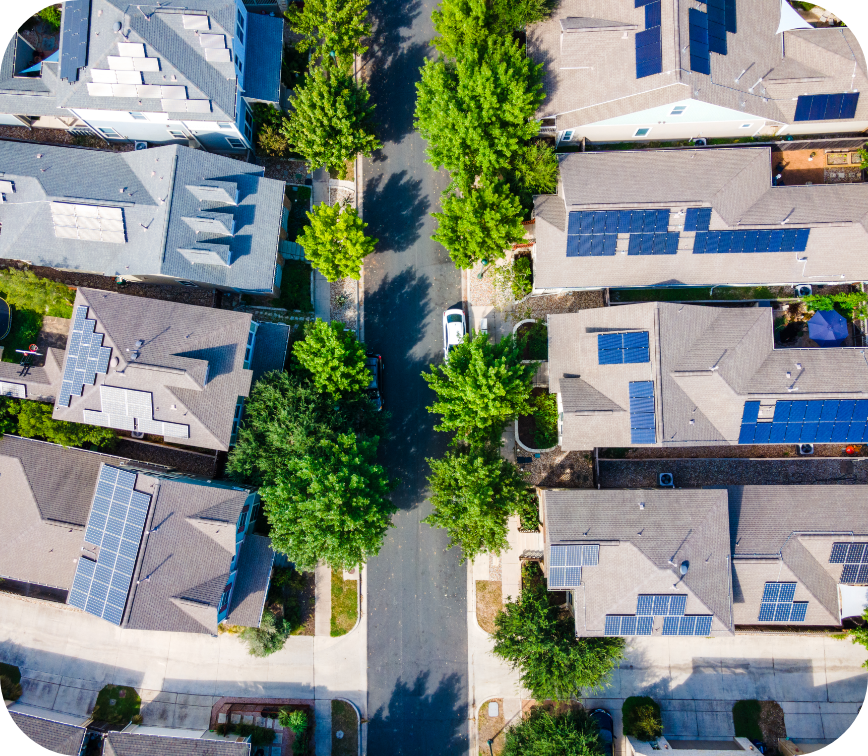
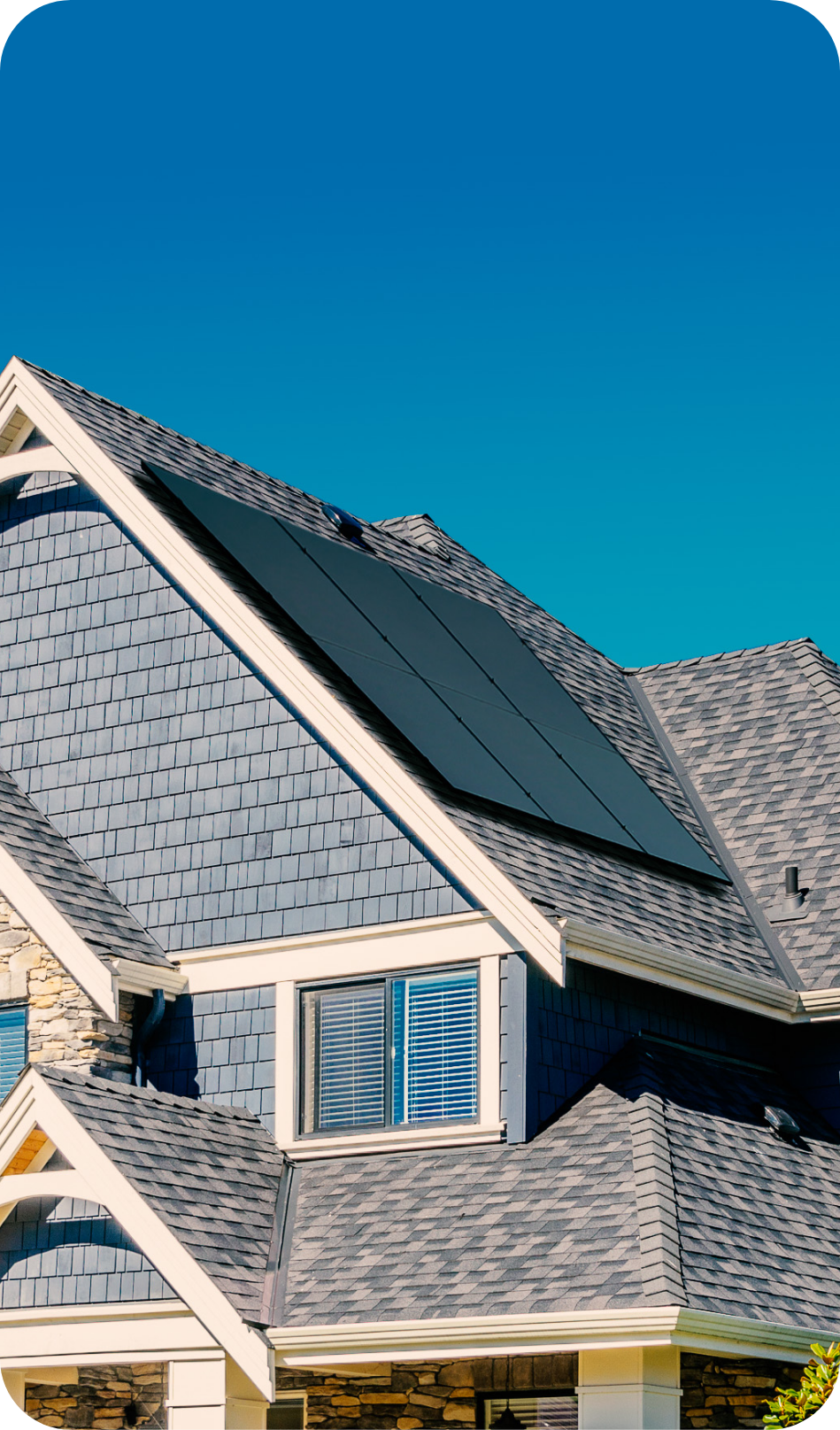
What Contributes to the Property Value of a Solar Home?
The property value of a solar home may increase or decrease based on several factors, such as ownership of your panels, location, electricity costs, and system age. When you purchase solar panels, you can pay for them upfront or lease them. Owning your panels may increase your home value because they’re a valuable asset, and potential buyers may be more interested in homes with paid-off systems. However, leased solar panels make it harder to quantify home value. Because the seller doesn’t own the system, buyers have to choose how to take over ownership, either through a transfer or a buyout.
Location plays a vital role in determining the value of a home with solar panels. Areas with a lot of sunlight and clear skies are ideal for solar panel installation. The amount of sunlight a home receives can significantly impact how effective a solar system is and its overall value. Sunlight angle also affects the performance of the panels. The optimal angle for solar panels is facing south, between 30 and 45 degrees. This position maximizes the amount of sunlight the panels receive and increases their efficiency.
Electricity costs are another essential factor to consider when assessing the value of a solar home. Rates can vary by city and can be pretty high in some areas. California has some of the nation’s highest electricity rates, with the average cost being 30 cents per kWh. Many homebuyers often look for homes with solar panels because they can reduce utility bills. As electricity rates continue to rise, the value of homes with solar panels is more likely to increase. Because of this, homes with solar panels may sell for more money in areas with high electricity rates.
Solar panels typically have a 25 to 30-year lifespan, after which their efficiency may start to decline. Because of this, the age of the system can impact its production, maintenance requirements, and overall value. However, advancements in solar technology occur rapidly, which has made newer panels more efficient throughout their lifetime. This means a newer solar system can produce more electricity with fewer panels, reducing the overall installation cost and increasing the system’s value. As solar technology continues to advance, older solar systems may become obsolete, reducing their overall value and appeal to potential buyers.
How Much Do Solar Panels Increase Home Value?
A study conducted by Zillow found that on average solar panels increased home value by 4.1% nationally. How much home value solar panels ultimately add to your home can vary depending on several factors. Homes with solar panels may appeal to environmentally conscious buyers interested in sustainable energy sources, which can lead to a higher perceived value of the property.
Solar panels can also reduce the cost of electricity bills, which can also appeal to buyers. However, the actual amount of added home value from solar panels will depend on factors such as location, solar system health, and real estate market conditions.
Solar manufacturers often offer warranties that can range from 10-25 years. These warranties cover defects in the panels and guarantee a minimum energy production level over the warranty period. If a solar system is still under warranty, it can increase its value, as it provides peace of mind for potential buyers that any defects will be covered. However, if a solar system is no longer under warranty, potential buyers may be reluctant to purchase the home since they would be responsible for any repairs or replacements.
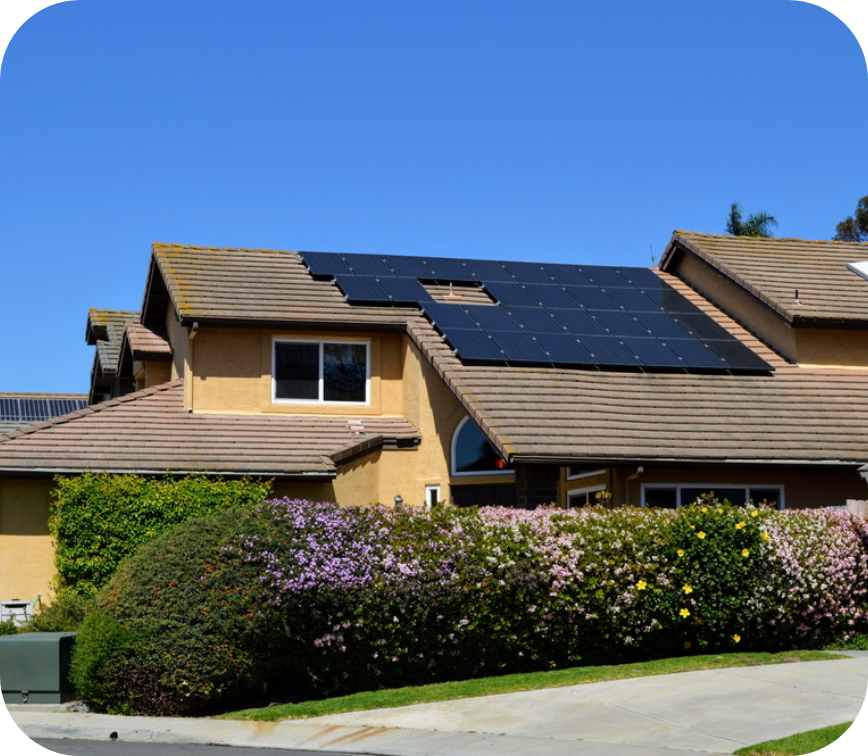
Are Solar Panels Worth the Investment?
Solar installation offers many benefits besides added home value, such as financial savings, energy independence, and environmental sustainability. Here’s a look at each of these to help you decide if solar panels are worth the investment for your home.
Financial Savings
Solar panels generate clean, renewable energy that can reduce your reliance on traditional grid electricity. By relying less on fossil fuels, you may be able to reduce your monthly electricity bill. Some areas also offer net metering programs that let homeowners sell excess energy back to the grid for credit on their bills.
Energy Independence
Home solar systems empower homeowners to reduce their dependence on the grid and take control of their energy production. By generating your own energy, you’re less vulnerable to potential utility rate increases, giving you more predictable monthly payments. This energy independence also provides stability and peace of mind knowing you have a reliable source of power.
Environmental Sustainability
Solar power is a clean and renewable energy source that doesn’t produce any toxic gases or pollutants. By investing in solar panels, you can reduce your carbon footprint and aid in the transition toward a more sustainable future for everyone.
Go Solar With Axia
If you’re looking to install solar in your home, Axia can help. Our goal is to help customers take control of their electricity bills and achieve energy independence. If you’re ready to price a system for your home, use our solar calculator for a free estimate. You can also contact one of our specialists to learn more about how we can help you electrify your life.
